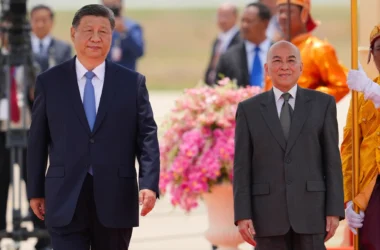EU ministers are preparing to discuss the rule of law situation in Hungary during a hearing in Brussels this week, but a lack of consensus among member states means no sanctions will be imposed under Article 7.
An EU diplomat confirmed on Tuesday that the required majority to move forward with sanctions is not in place. “What’s clear to me is that I’m not sure that we at this stage have the required votes,” the diplomat said, casting doubt on whether the political will to escalate the process exists.
The hearing is part of the ongoing Article 7 proceedings, initiated in 2018 when the European Parliament called for action against Hungary over alleged violations of democratic norms, particularly concerning judicial independence and media freedom. Since then, the Council has held eight discussions but has never advanced to the next phase, which would involve a vote on sanctions.
During Tuesday’s meeting, EU affairs ministers will review developments in Hungary, including the recent police ban on the Budapest Pride march and a proposed Transparency Law that could restrict the operations of foreign-funded media. “I think some member states will raise it. I cannot really tell you how it will be discussed,” the diplomat added. “The aim now is to provide the Council with updated information and a picture of the situation in Hungary.”
Article 7 has two phases: the first involves a fact-finding process through hearings, while the second enables potential sanctions, including the suspension of a member state’s voting rights. However, sanctions require unanimous agreement from all member states—excluding the country in question. A formal reprimand for consistent violations would require the support of 80% of member states.
At present, neither condition has sufficient backing. Slovakia, led by Robert Fico, has pledged to block any attempt to sanction Hungary. In January 2024, Fico stated that as long as he remained in office, he would oppose punishing a country for asserting its national sovereignty. Other member states may follow suit.
Hungary has repeatedly criticized the Article 7 process, calling it a politically motivated attack on its government. Officials in Budapest have also pushed for a broader reform of the EU’s sanctions mechanisms.
In contrast, Poland—previously under Article 7 scrutiny—saw its case dropped after a change in leadership. The new pro-EU administration under Donald Tusk rolled back controversial judicial reforms, leading to the suspension of proceedings.




